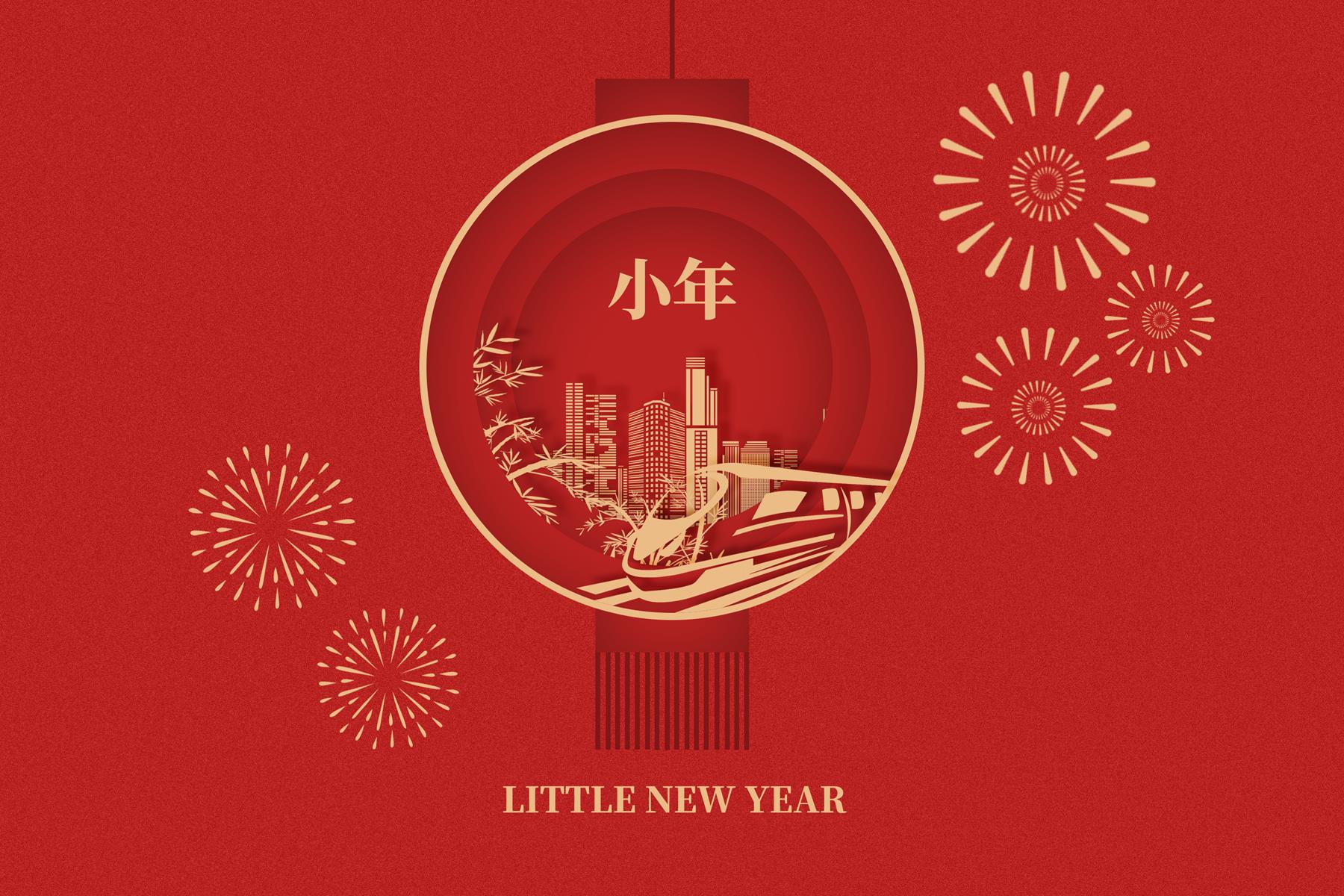





Xiaonian(Little New Year), also known as "Preliminary Eve," is an important festival in the twelfth lunar month, marking the beginning of the Chinese New Year. When Xiaonian(Little New Year) arrives, it signifies the start of the Chinese New Year preparations. People begin preparations by purchasing festival goods, cleaning their homes, and performing rituals such as offering sacrifices to the Kitchen God. The preparations aim to welcome the New Year with a fresh start, expressing people's hopes for a prosperous and auspicious year.
However, the date for Xiaonian(Little New Year) varies in different regions. In the northern parts of China, it is observed on the twenty-third day of the twelfth lunar month, while in the southern regions, it is observed on the twenty-fourth day.
However, the date for Xiaonian varies in different regions. In the northern parts of China, it is observed on the twenty-third day of the twelfth lunar month, while in the southern regions, it is observed on the twenty-fourth day.
Xiaonian(Little New Year) is also known as the Kitchen God Festival, a traditional Chinese day for worshipping the kitchen God. According to folklore, on the twenty-third day of the twelfth lunar month, the Kitchen God ascends to heaven with the Earth god to report on the good and bad deeds of each household, allowing the Jade Emperor to reward or punish accordingly.
On this day, people offer sacrifices to the Kitchen God, including sugar cakes, nian gao (New Year cake), dates, chestnuts, and walnuts. During the ritual, people melt sugar and apply it to the lips of the Kitchen God so that he can speak sweet words. This tradition symbolizes the Kitchen God reporting positive news to heaven and ensuring peace for the people below, embodying people's hopes for a good life in the coming year.
In modern times, belief in supernatural beings has waned, and sacrificial rituals are less common. However, during special occasions like the Spring Festival, worshipping the Kitchen God or other deities is more about cultural and folk heritage, serving as a ceremonial and festive tradition. Xiaonian retains numerous meaningful, traditional customs.
Cleaning (Sao Chen): After Xiaonian, which means the Chinese New Year is approaching, people typically engage in thorough cleaning of their homes. This includes cleaning various tools, washing bedding, and sweeping away dust and cobwebs. In the northern regions, it is called "sao fang" (sweeping the house), while in the southern regions, it is known as "dan chen yin chen," with a play on words to signify sweeping away poverty and misfortune. Early in the morning, adults call on children to use long tools to clean hard-to-reach places, targeting things like spider webs and dust. The goal is to have a spotless home, symbolising the removal of the old and welcoming the new, sweeping away bad luck, and ushering in the New Year with a clean slate.
Pasting paper-cuts for window decoration
In traditional Chinese folklore, the art of paper-cut for window decoration has always been a must-do In traditional Chinese folklore, the art of paper-cutting to decorate windows has always been a must-do activity during the Spring Festival and Xiaonian (Little New Year). On the night of Xiaonian, the elderly take out scissors and coloured paper to craft beautiful creations, which are then put in the windows of their homes. They come in various shapes, but many are adorned with zodiac animal patterns or auspicious phrases, symbolising the wish for "good luck and prosperity" in the new year.
Bathing and Haircut
There's a saying in Chinese folklore, "Whether you are rich or poor, get a haircut for the New Year," suggesting the removal of bad luck from the previous year. According to our traditional customs, hair should not be cut in the first month of the lunar year, especially in northern China, where washing and hair-washing are prohibited from New Year's Eve until the second day of the lunar year. Therefore, on Xiaonian, people take baths and get haircuts to start the new spring season fresh and clean.
Eating Stove Sugar
Stove sugar, with a layer of sesame on the outside and malt sugar solidified inside, is also known as sesame sugar. It is associated with the legend of the Kitchen God and the Earth God ascending to heaven to report on each household's good and bad deeds for the year.
In the southern part of China, there is no tradition of pasting window flowers. On Xiaonian, both northern and southern regions involve activities like cleaning and worshipping the Kitchen God. However, in the north, people typically eat dumplings, while in the south, the common food is nian gao (New Year cake). Despite the regional differences, the shared wishes for a beautiful new year, praying for peace, and good fortune remain consistent.
All Chinese people.
China
On the twenty-fourth day of the twelfth lunar month.












